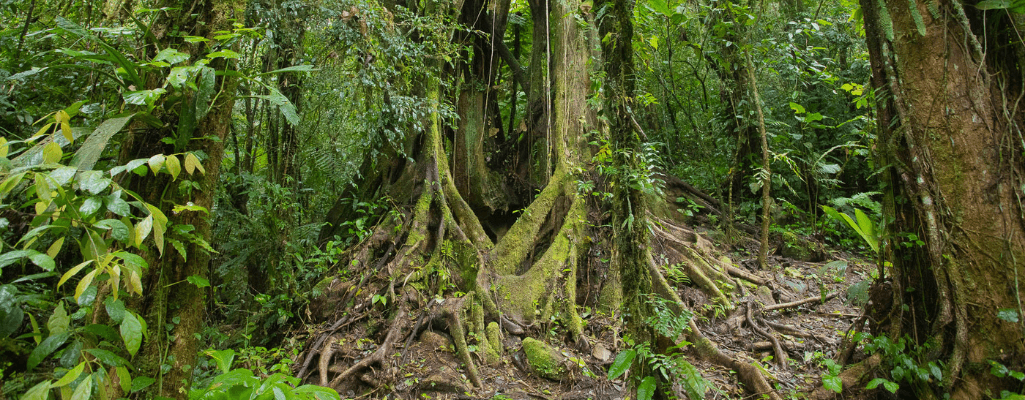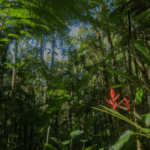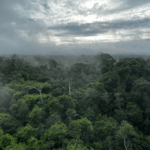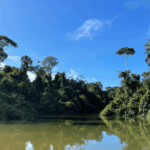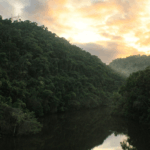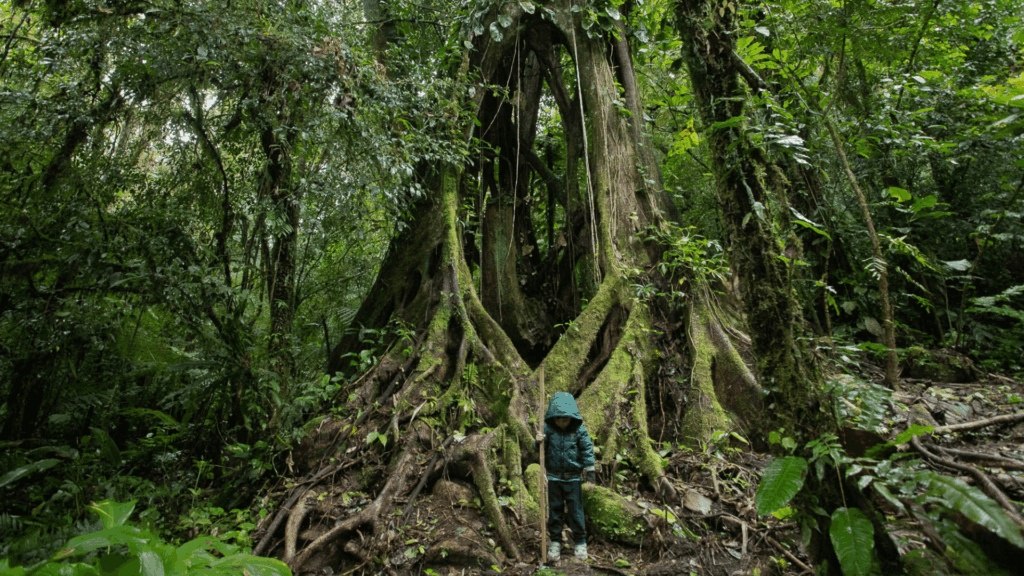Forests are complex networks of interconnected trees, forming a green canopy that shelters countless species and regulates both climate and water cycles. According to the Forests of Brazil report (2019), Brazil has about 488 million hectares of forests, which represents approximately 59% of its national territory, well above the global average of 32%. This makes the country one of the world’s leading forest guardians, home to major ecosystems such as the Amazon Rainforest, the largest tropical forest on Earth..
But forests are more than just a collection of trees. They are living ecosystems that rely on the interaction between fauna, flora, soil, and climate to remain healthy. In this way, forests function like living organisms, where each element plays a role in maintaining balance. Many animal species, for example, fulfill key ecological functions such as pest control and seed dispersal, contributing to natural vegetation regeneration and the preservation of biodiversity.
Onçafari has been expanding its environmental protection actions by investing in the integrated conservation of forest environments, because protecting wildlife means protecting forests, and vice versa.
Photos: Gustavo Pedro, Leonardo Sartorello, and João Pedro Salgado
Despite its vast forest coverage, Brazil is facing significant losses. Between 1985 and 2022, nearly 15% of native forests were lost, with a recent decline of almost 10 million hectares over the past five years, according to MapBiomas. Accelerated deforestation and wildfires threaten the resilience of these ecosystems and call for urgent action.
July 17 marks Brazil’s National Forest Protection Day, which also honors the Forest Protector Day, represented by Curupira, a character from Brazilian folklore. Known as the guardian of forests, wildlife, and nature, Curupira symbolizes vigilance against poaching, illegal exploitation, and deforestation. Passed down through generations, this legend remains relevant today, inspiring the training of conservation professionals and institutions—such as NGOs, traditional communities, researchers, environmental agents, and everyone committed to protecting the environment.
Among these efforts is the work of Onçafari, which operates across four Brazilian biomes through eight fronts: Ecotourism, Science, Education, Reintroduction, Social, Forests, Fire Prevention, and Advocacy. Through its Forests Front, Onçafari protects large natural areas by acquiring land for conservation—key pieces in creating ecological corridors that connect protected areas and forest fragments. Today, Onçafari manages 7 private reserves across the Pantanal and Amazon, totaling 115,000 hectares of protected land and over 430,000 hectares of ecological corridor through the 5P Alliance. These corridors are vital for enabling wildlife to move freely across landscapes, ensuring genetic diversity and ecosystem health.
In addition, Onçafari runs a fire prevention and response program, especially in the Pantanal and Amazon, involving surveillance, planning, integrated land management, direct firefighting, and local brigade training. Since its creation in 2024, the Fire Prevention Front has trained more than 45 brigade members, and distributed over 98 firefighting tools, including backpack water pumps, fire beaters, and blowers.
In the realm of public policy, the Advocacy Front supports the development and improvement of laws and policies focused on biodiversity and forest protection.
The combination of practical action and institutional influence has strengthened Onçafari’s role as a science-driven ally in the fight to preserve Brazil’s forests.
You can be a forest protector too:
- Choose products with certified or reforested wood labels;
- Avoid burning waste and improper disposal of organic matter;
- Respect protected areas and support conservation work;
- Choose brands that support environmental and social causes.
Share this content: collective awareness is key to protecting our forests.
Written by: Maria Julia Farias
Cover photo: Gustavo Pedro

